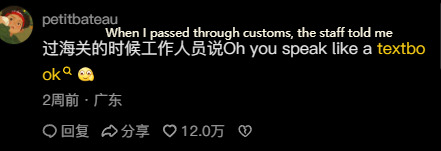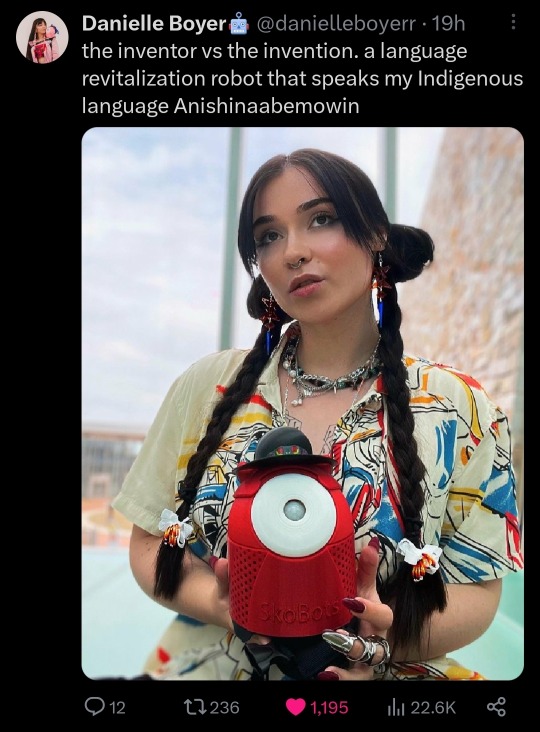#Language
Note
The craziest nickname i know of even more of of leftfield than Peg for Margaret, is Tuck for William. Can you explain where that one came from?
While I've seen a few scattered Williams who go by Tuck, I've never seen any formal association with the name William.
I feel like English has too many terms for nicknames (diminutive, hypocorism, sobriquet, pet name, etc.) which either have no firm definitions, or they have definitions that largely overlap - which leads to a lot of confusion as to exactly what type of nickname you're talking about.
For example: my given name is Samantha, but my family calls me Sissy. Sissy is my (a person named Samantha's) nickname, but that doesn't mean Sissy is a nickname for Samantha.
So while Tuck may be a person named William's nickname, it isn't a nickname for William (at least not that I've ever come across).
And Peg may seem odd, but it's actually pretty straight-forward linguistically:
Margaret was shortened Marg, Marg became Mag due to many British dialects lacking rhoticity, Mag became Meg as a result of the Great Vowel Shift, and Meg rhymes with Peg and people really, really like rhyming stuff.
67 notes
·
View notes
Text
THOU, THEE, THY, THINE. SAME THING RIGHT?
NO.
Although they seem very similar, Shakespeare would be in tears if he saw how most people mix them up. lets save William the misery and teach you when to correctly use thou, thy, and thine.
THOU
Thou = You (in subject form)
"Thou art killing me."
"Art Thou crying?"
THEE
Thee = You (in object form)
"I want to kill thee."
"My dog ate thee in my dream."
THY
Thy = Your (before a word that starts with a consonant)
"Thy mother."
"Give me thy duck."
Thyself is used the same as any other thy+word combination like "thy mother" but without a space
"Take care of Thyself."
THINE
Thine = Your (before a word that starts with a vowel)
"Thine unibrow is evident."
"Thou art on thine own."
Now Shakespeare can truly rest in peace.

Go follow me @leisureflame for more posts like this!
84 notes
·
View notes
Note
Finally saw Dune Part Two, and the awesome work you and @quothalinguist did with Chakobsa left me speechless!! Just a quick question: in the film, it's mentioned that Stilgar speaks with a southern accent. Was such a phonology developed or was there only one used throughout the film? Thanks!
I think that was just something they made up due to the fact that Javier Bardem has a different accent when speaking English from many of the other people who play Fremen.
19 notes
·
View notes
Text
Lingthusiasm Episode 91: Scoping out the scope of scope
When you order a kebab and they ask you if you want everything on it, you might say yes. But you'd probably still be surprised if it came with say, chocolate, let alone a bicycle...even though chocolate and bicycles are technically part of "everything". That's because words like "everything" and "all" really mean something more like "everything typical in this situation". Or in linguistic terms, we say that their scope is ambiguous without context.
In this episode, your hosts Lauren Gawne and Gretchen McCulloch get enthusiastic about how we can think about ambiguity of meaning in terms of scope. We talk about how humour often relies on scope ambiguity, such as a cake with "Happy Birthday in red text" written on it (quotation scope ambiguity) and the viral bench plaque "In Memory of Nicole Campbell, who never saw a dog and didn't smile" (negation scope ambiguity). We also talk about how linguists collect fun examples of ambiguity going about their everyday lives, how gesture and intonation allow us to disambiguate most of the time, and using several scopes in one sentence for double plus ambiguity fun.
Read the transcript here.
Announcements:
In this month’s bonus episode we get enthusiastic about the forms that our thoughts take inside our heads! We talk about an academic paper from 2008 called "The phenomena of inner experience", and how their results differ from the 2023 Lingthusiasm listener survey questions on your mental pictures and inner voices. We also talk about more unnerving methodologies, like temporarily paralyzing people and then scanning their brains to see if the inner voice sections still light up (they do!).
Join us on Patreon now to get access to this and 80+ other bonus episodes. You’ll also get access to the Lingthusiasm Discord server where you can chat with other language nerds.
Also: Join at the Ling-phabet tier and you'll get an exclusive “Lingthusiast – a person who’s enthusiastic about linguistics,” sticker! You can stick it on your laptop or your water bottle to encourage people to talk about linguistics with you. Members at the Ling-phabet tier also get their very own, hand-selected character of the International Phonetic Alphabet – or if you love another symbol from somewhere in Unicode, you can request that instead – and we put that with your name or username on our supporter Wall of Fame! Check out our Supporter Wall of Fame here, and become a Ling-phabet patron here!
Here are the links mentioned in the episode:
Wikipedia entry for Everything Bagel
'Shel Silverstein's hot dog and the domain of "everything"' post on Language Log
Wikipedia entry for 'Scop' (an oral poet)
'New publication: Reported evidentiality in Tibeto-Burman languages' post on Superlinguo
Wikipedia entry for Tom Swifty
'Bench in honour of Nicole Campbell, who never saw a dog and didn't smile' post on All Things Linguistic
WALS entry for Feature 144B: Position of negative words relative to beginning and end of clause and with respect to adjacency to verb
'A few notes on negative clauses, polarity items, and scope'
'I didn't ask you to kill him' Learning English post on sentence stress and meaning
'I didn't ask you to kill him' sentence stress example in action by @dheanasaur on TikTok (⚠︎warning, loud sound)
Non-manual Markers in ASL / NMM's
'The Impulse to Gesture: Where Language, Minds, and Bodies Intersect' by Simon Harrison
'Quantifier Scope Jokes' post on All Things Linguistic
'Caring for your baby since 1890' ambiguity post on All Things Linguistic
You can listen to this episode via Lingthusiasm.com, Soundcloud, RSS, Apple Podcasts/iTunes, Spotify, YouTube, or wherever you get your podcasts. You can also download an mp3 via the Soundcloud page for offline listening.
To receive an email whenever a new episode drops, sign up for the Lingthusiasm mailing list.
You can help keep Lingthusiasm ad-free, get access to bonus content, and more perks by supporting us on Patreon.
Lingthusiasm is on Bluesky, Twitter, Instagram, Facebook, Mastodon, and Tumblr. Email us at contact [at] lingthusiasm [dot] com
Gretchen is on Bluesky as @GretchenMcC and blogs at All Things Linguistic.
Lauren is on Bluesky as @superlinguo and blogs at Superlinguo.
Lingthusiasm is created by Gretchen McCulloch and Lauren Gawne. Our senior producer is Claire Gawne, our production editor is Sarah Dopierala, our production assistant is Martha Tsutsui Billins, and our editorial assistant is Jon Kruk. Our music is ‘Ancient City’ by The Triangles.
This episode of Lingthusiasm is made available under a Creative Commons Attribution Non-Commercial Share Alike license (CC 4.0 BY-NC-SA).
#linguistics#language#lingthusiasm#episodes#podcast#podcasts#episode 91#scope#ambiguity#scope ambiguity#linguist humour#SoundCloud
12 notes
·
View notes
Text

15K notes
·
View notes
Text

26K notes
·
View notes
Note
Did Jack not come from the French version of john 'Jaques'?
This is a centuries' old scholarly debate, the short answer of which is most likely no.
First off a correction - Jacques is actually the French form of James, not John (which is Jean).
There appears to have been some discussion in the 19th century as to whether Jack may have originated as a nickname for James and only became associated with John later on (much as Hank originated as a nickname for John before it became associated with Henry) - but later research seems to discount this theory.
The seminal work on this subject is a paper/booklet titled The Pedigree of 'Jack' and of Various Allied Names written by English librarian E. W. B. Nicholson in 1892.
In his research Nicholson found "no recorded instance of Jack, Jak, Jacke or Jakke ever being used to represent Jacques or James".
That being said - names don't develop in a vacuum, nor in laboratory conditions. It's entirely possible that Medieval Englishmen being exposed to the name Jacques influenced the shortening of Jackin to Jack - but short of a time machine trip to ask someone why they chose to go by Jack and not Jackin, it's kind of impossible to prove one way or another.
72 notes
·
View notes
Text
It's not what I expected by 我是阿彪叻



#china#douyin#video#funny#share your stories if you ever learn a second language and then talk to native speakers#language#linguistics
7K notes
·
View notes
Note
I noticed an error in the Trigedasleng v5 PDF. In the T-to-E section the 'shilkrola' entry has the pronunciation guide and definition for the 'trikrola' entry. It is correctly listed in the E-to-T section as the word for 'turtle' though.
Thanks! This has been fixed as of version 6. I keep the old versions up for historical purposes. (I will note, though, that version 5 is the first version I shared.)
For those unfamiliar, shilkrola is a turtle and trikrola is a sloth. :)
14 notes
·
View notes
Text

Alt: the inventor vs the invention. a language revitalization robot that speaks my Indigenous language Anishinaabemowin pic.twitter.com/ydo88kMzT9
Photo of inventor Daniel Boyer holding language bot. Hair in large buns with braids going down and wearing cream shirt with colorful abstract design on it.
— Danielle Boyer🤖 (@danielleboyerr) February 1, 2024
#Danielle Boyer#Inventors#Engineers#Language#Robots#Anishinaabemowin#Indigenous#Indigenous people in tech#Tech#Technology#Alt text in image#Image description in image
6K notes
·
View notes
Text

5K notes
·
View notes
Text

15K notes
·
View notes
Text
We ask your questions so you don’t have to! Submit your questions to have them posted anonymously as polls.
#polls#incognito polls#anonymous#tumblr polls#tumblr users#questions#polls about language#submitted dec 11#grandparents#family#language
2K notes
·
View notes
Note
Hello, If you were to follow your High Valyrian's grammar the word for Dragonfire could be something like Zaldrizperzys (like Dragonstone, Zaldrīzo + dōron = Zaldrīzdōron or Zaldrizys (like Dreamfyre, Ēdrurys + Perzys = Ēdruzys)?
There are different fires with different properties in A Song of Ice and Fire. A dragon's fire is one of those, and in Valyrian, it has its own word: drakarys.
16 notes
·
View notes
Text

I'm half Russian decent and that definitely sounds like something I would say.
2K notes
·
View notes
Text
#poll#polls#languages#language#denmark#danish#sweden#swedish#finland#finnish#iceland#icelandic#estonia#estonian#norway#norwegian#russia#russian#latvia#latvian#germany#german#slovenia#slovenian#ireland#irish#italy#italian#sorry... there's no many of these/all of these option 😭 this will be hard for me too!#learning
2K notes
·
View notes